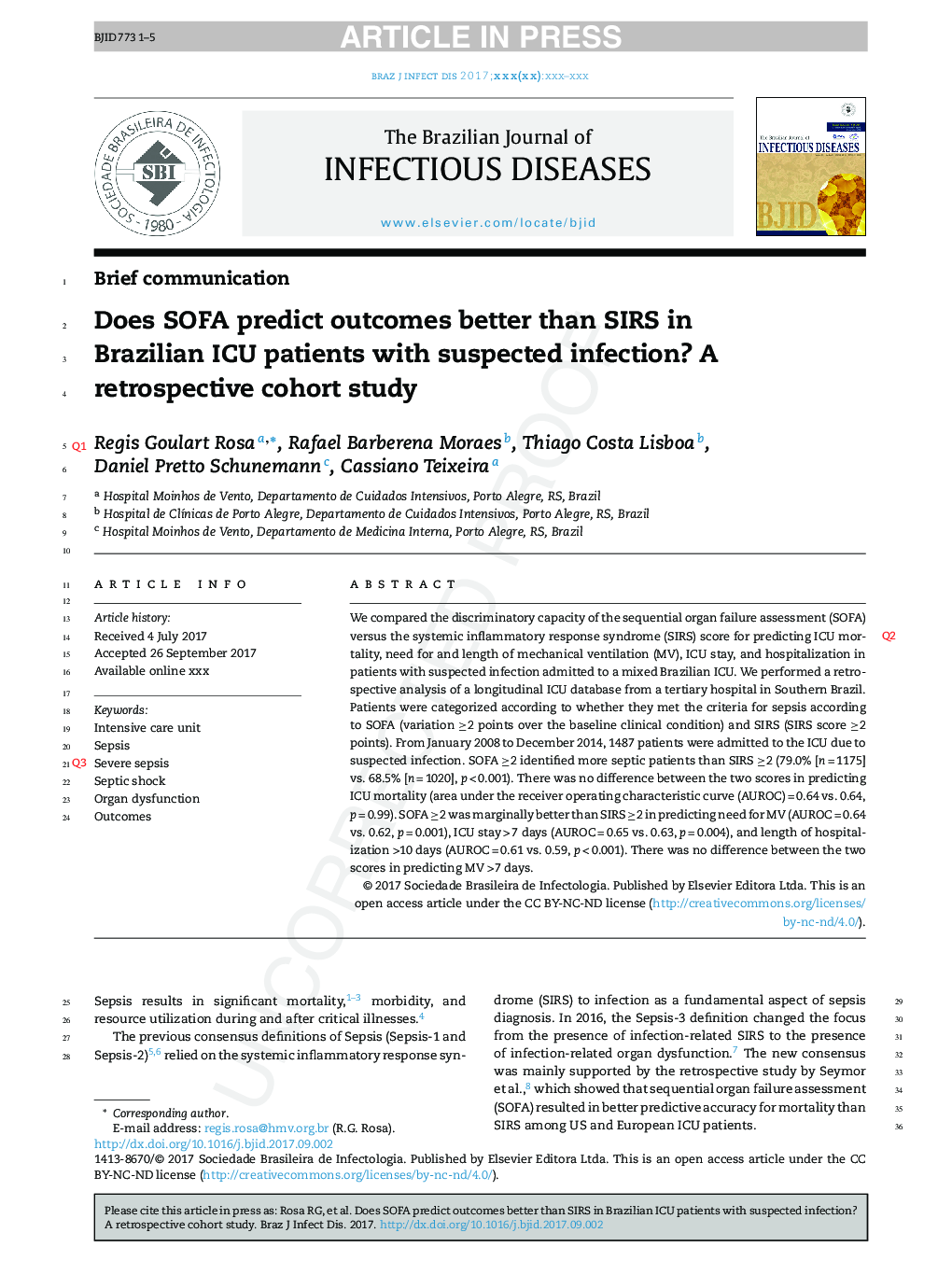| Article ID | Journal | Published Year | Pages | File Type |
|---|---|---|---|---|
| 8736758 | The Brazilian Journal of Infectious Diseases | 2017 | 5 Pages |
Abstract
We compared the discriminatory capacity of the sequential organ failure assessment (SOFA) versus the systemic inflammatory response syndrome (SIRS) score for predicting ICU mortality, need for and length of mechanical ventilation, ICU stay, and hospitalization in patients with suspected infection admitted to a mixed Brazilian ICU. We performed a retrospective analysis of a longitudinal ICU database from a tertiary hospital in Southern Brazil. Patients were categorized according to whether they met the criteria for sepsis according to SOFA (variation â¥2 points over the baseline clinical condition) and SIRS (SIRS score â¥2 points). From January 2008 to December 2014, 1487 patients were admitted to the ICU due to suspected infection. SOFA â¥2 identified more septic patients than SIRS â¥2 (79.0% [n = 1175] vs. 68.5% [n = 1020], p < 0.001). There was no difference between the two scores in predicting ICU mortality (area under the receiver operating characteristic curve (AUROC) = 0.64 vs. 0.64, p = 0.99). SOFA â¥2 was marginally better than SIRS â¥2 in predicting need for mechanical ventilation (AUROC = 0.64 vs. 0.62, p = 0.001), ICU stay > 7 days (AUROC = 0.65 vs. 0.63, p = 0.004), and length of hospitalization >10 days (AUROC = 0.61 vs. 0.59, p < 0.001). There was no difference between the two scores in predicting mechanical ventilation >7 days.
Related Topics
Life Sciences
Immunology and Microbiology
Immunology and Microbiology (General)
Authors
Regis Goulart Rosa, Rafael Barberena Moraes, Thiago Costa Lisboa, Daniel Pretto Schunemann, Cassiano Teixeira,
